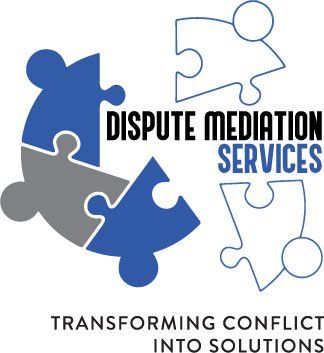DISCOVERING SOLUTIONS THROUGH MEDIATION
Dispute Mediations is based in Brisbane and extends mediation services for clients on the Gold Coast, Sunshine Coast and across Australia.
WHAT IS MEDIATION?
Alternative dispute mediation is where an unbiased mediator facilitates a process that allows two parties to decide the issues between themselves. This is done by identifying the issues, exploring options, considering alternatives and transforming them into problem-solving opportunities. The parties may reach an agreement about some issues or the whole dispute.
Mediation often becomes a compulsory part of the judicial process where the courts are now regularly directing that mediation is undertaken before setting a court date. However, any party can instigate a mediation without a court directive or other potentially costly legal involvement.
WHY MEDIATE?
Recent research confirms that Mediation has been highly successful in resolving over 80% of cases - this is because it can save time and money while empowering parties to resolve conflicts in a more enduring way. Here are some of the main reasons why mediation can help resolve disputes:
Less costly than legal and court
- Mediation has proven to be the cost-effective alternative to surrendering to an adjudicator the right to determine the outcome of the dispute at hand.
- Timely process with little waiting time.
Avoids destructive escalation
- The mediation process can avoid destructive escalation and lost opportunities to find solutions that are better for both sides, which they agree is better than the alternative.
- Provides a platform where parties can see things from both perspectives.
Empowering process for the parties
- Mediation creates an empowering process allowing parties to resolve conflicts in a more enduring way.
- Mediation creates an atmosphere in which parties gain understanding, begin to be understood, and ultimately work together to explore options for resolution.
The parties own the outcome
- The mediator owns the process whilst the parties, by resolving disputes in mediation, own the outcome. This is because they determine for themselves what is important and, with professional support, the best outcomes.
Mediation venues are flexible
- Mediation can come to you in regional areas if unable to attend our offices.
- Mediation can be conducted online if necessary.
More people should know that if they had a mediator with trained skills, parties will most of the time get to an agreement they can live with in a short and less stressful timeframe.
THE MEDIATION METHOD
Research shows that the majority of solutions-focused, facilitative mediations result in a resolution that both parties can live with which is better than the alternative.
The methodology of facilitative mediation is this: the mediator owns the process whilst the parties own the solution or the outcome. The mediator is unbiased and will not give legal or other advice, provide suggestions or take sides. The mediator uses their trained skills to manage the rigid process and rules which the parties abide by in good faith.
Mediation begins in the ‘past’ ends in the ‘future’
" Rather than dwelling on the conflict, solution-focused mediation asks: What would you prefer instead of conflict? The focus is on the desired outcome: the future with a difference. Clients are considered capable of formulating their own goal and or devising solutions ".
F.P. Bannink
FAQs
Dispute Mediations Helps You Decide The Issues Worth Mediating. Call us today on 1300 315 300 or 0407 755 222




